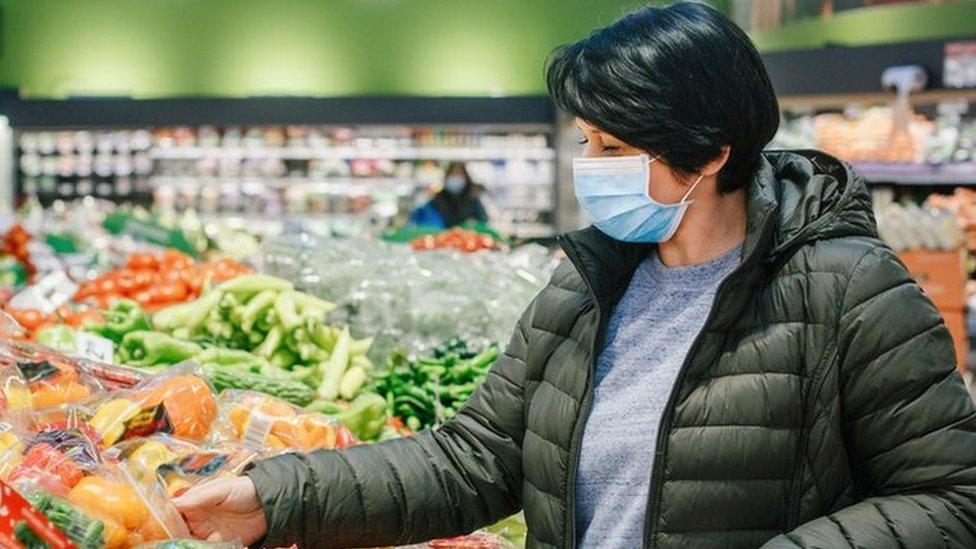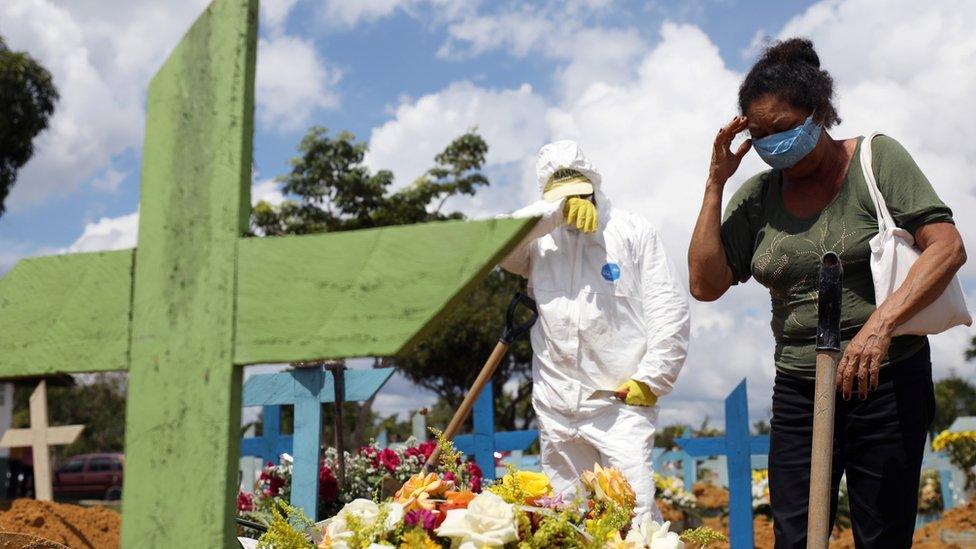Covid-19: St Albans has one of country's highest rates
- Published

St Albans has one of the highest number of Covid cases in the country
People have been warned Covid infection levels are "high enough for numbers to rise again rapidly" in a district which has England's seventh highest rate.
St Albans in Hertfordshire had a case rate of 561.9 cases per 100,000 people in the week to 4 November.
It is 24% down on the previous week, but the district has moved up from 12th in the country as other areas' rates have reduced faster.
Herts County Council said while rates had fallen, cases might rise quickly.
A council spokesman said Covid infections in the St Albans district "have not fallen as quickly as in most other areas and the levels of infection in the community are high enough for the numbers to rise again rapidly".
"St Albans remains the district with the highest rates in Hertfordshire and one of the highest in the country," he said.
"Cases in the district have been falling in school-age children, possibly as a result of half-term, but that is largely being cancelled out by rising case numbers in adults, particularly among 40-59-year-olds."

Cases in St Albans - pictured during a lockdown in 2020 - are moving at a higher rate than in other areas of Hertfordshire
The next highest case rate in Hertfordshire was the Three Rivers district, covering Rickmansworth, Chorleywood and Abbots Langley, which was in 54th position.
St Albans recorded 839 cases in the week to 4 November, down on the previous week's figure of 1,099.
Three Rivers had 433 cases, which represented a case rate of 461 cases per 100,000 people, with this remaining stable compared with the week before.
The county council said it hoped infection numbers would continue to fall in St Albans as more young people got vaccinated, boosters were rolled out and "more people return to using face coverings".
"However, it does depend to a large extent on people continuing to do those basic things like wearing masks in crowed places, meeting in well-ventilated places, washing hands regularly and getting tested and isolating if they are ill," the council spokesman said.

Find BBC News: East of England on Facebook, Instagram and Twitter. If you have a story suggestion email eastofenglandnews@bbc.co.uk
Related topics
- Published1 November 2021

- Published1 November 2021
